Neelam
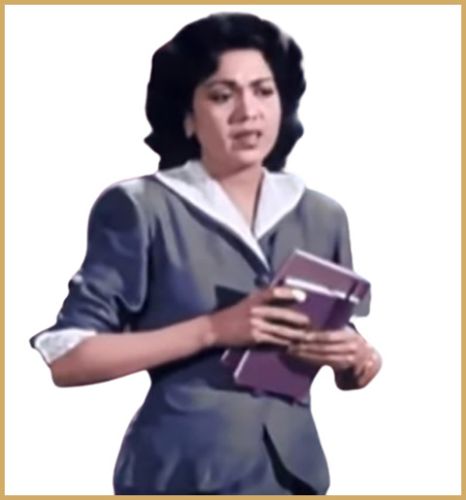
Subscribe to read full article
This section is for paid subscribers only. Our subscription is only $37/- for one full year.
You get unlimited access to all paid section and features on the website with this subscription.
Not ready for a full subscription?
You can access this article for $2 , and have it saved to your account for one year.
- Real Name: Leticia Ferns
- Born: 17/09/1928 (Mangalore)
- Primary Cinema: Hindi
Born Leticia Ferns, Neelam is known for acting in films such as Chini Jadugar (1947), Taqdeerwale (1948), Chori Chori (1956), Bewaqoof (1960), Ankhen (1968) and Yakeen (1969). While she essayed lead roles initially, she largely played various supporting roles such as a secretary in Chori Chori (1956), a doctor in Barkha (1959), a sister-in-law in Bedard Zamana Kya Jane (1959), and a mother in Phool Aur Patthar (1966). According to an interview conducted in 1954 in Cineplot, she was a devout Roman Catholic. Dusky and limpid-eyed, she was perhaps the only film star of Bombay whose earliest ambition was to become a nun!
Born in Mangalore on 17 September 1928, she came to Bombay when she was a year old, and later enrolled at Gloria High School where she did her matriculation. Right from her school days, she was a serious and thoughtful girl and never indulged in fancy dreams of becoming a film star. She was happiest when attending her religion classes and she thought she would like to dedicate her life to the service of God. Her grandmother, however, was not approving of the idea.
Her fondness for children saw her take up a position as a teacher in St Teresa’s School. A year later, however, she quit teaching to take up work with the Telephone Company. It was here that she, like a few other colleagues, made contacts which changed her life.
In the course of her job at the Telephone Company, she met several film personalities such as Meena Shorey, Mumtaz Shanti, Sheila (who used to feature in Sohrab Modi’s films), Husn Banoo and her mother, Sharifa.
Her fresh, youthful looks, trim figure, charm and vivacity won her considerable attention. One day, director S M Yusuf spotted her and insisted that she play the lead in Chini Jadugar (1947), a semi-stunt film. At first bewildered by the offer and knowing her family would never approve, she nevertheless decided to take the plunge. She used the leave accumulated at office to start working in the film, without telling her family about it. After completing her role in the film, she quietly resumed her daily routine. Her secret was out when a photograph of hers appeared in The Times of India. She calmed the objections of her family by pledging to donate part of her earnings from films towards the maintenance of an orphanage. Deciding to remain in films, she was guided in the selection of her screen name by her friend, Meena, who had played the title role in a film titled Neelam (1945).
After her debut role, she worked in Wali’s Padmini (1948) and Taqdeerwala (1948), a Rajan Pictures’ action film with a cast that included Rajan, Habib, Chandrika, Shanta Desai, Putli, Fazlu, Mannan and Maqbool. Directed by S H Tharani, the film had music by Shyam Babu Pathak and Ram Prasad with lyrics by Muzaffar and Indeevar.
She was asked to dance in Nargis Art Concerns’ Romeo and Juliet (1947). Although she did not work in this film, she formed a fruitful association with Nargis and her mother Jaddanbai. The latter took a tremendous liking to her and groomed her with loving care. Neelam would later share, “I miss her love and kindness. She was like a mother to me. I can say that I ‘woke up’ in her lap, because it was with her help that I saw life and learnt how to face it.” It was Jaddanbai who helped her find roles in Anjuman (1948), Darogaji (1949), Pyar Ki Baatien (1951), Bewafaa (1952), Chori Chori (1955) and Bewaqoof (1960).
She also acted in the 1949 drama horror mystery Mahal, written and directed by Kamal Amrohi. Starring Ashok Kumar and Madhubala, the plot revolved around a young lawyer who is involved with a ghostly woman in his new house, where the builder and his fiancée died shortly after it was built.
Later, she acted in films such as Ankhen (1968), the Mala Sinha-Dharmendra starrer directed by Ramanand Sagar. An action adventure drama, it was set in a time in the history of independent India when terrorist attacks in Assam resulted in many deaths and casualties. It depicted a group of concerned citizens who decide to do something to stop the carnage.
Yakeen (1969) saw her in the action crime romance directed by Brij. Starring Dharmendra and Sharmila Tagore, the film revolved around Rajesh Sharma, who is working with the Indian government on a top secret research project. He has to deal with enemy agents, explosions, murder and a dangerous look-alike.
True to her promise to her family, she spent most of her money in looking after children of destitute mothers. At one point, when she could afford it, she adopted nine children - eight girls and one boy, and looked after them until they grew up and were able to look after themselves or were helped to pursue higher education.
References
Cineplot
https://atulsongaday.me/2021/05/07/mujhe-waqt-e-namaaz-yaad-jo-aayee-teri/
https://twitter.com/cinemaazi/status/1571106517709094913?lang=en
https://www.imdb.com/name/nm0624175/bio/?ref_=nm_ov_bio_sm
http://myswar.co/album/taqdeerwale-1948
Image courtesy: https://www.youtube.com/watch?v=z4zVZL5B0LQ (at 19.14 mins)
-
Filmography (88)
SortRole
-
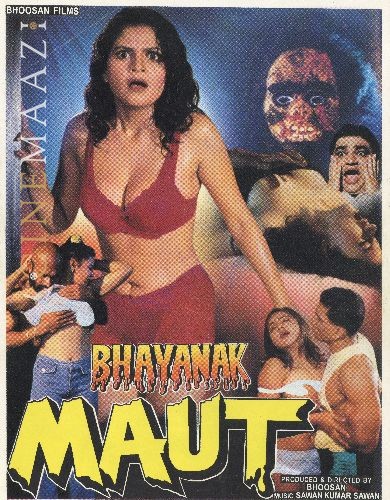
Bhayanak Maut 2000
-
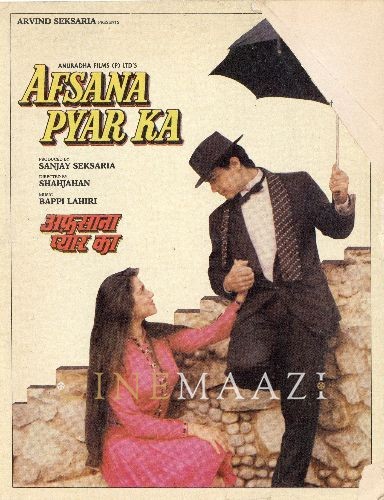
Afsana Pyar Ka 1991
-
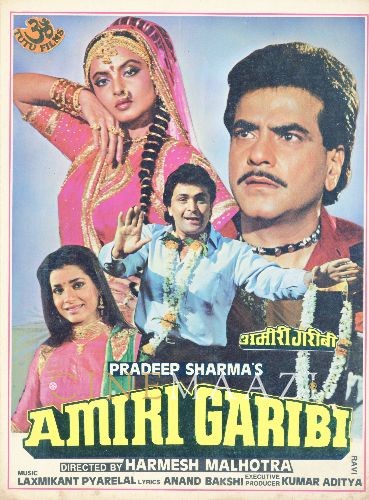
Amiri Garibi 1990
-
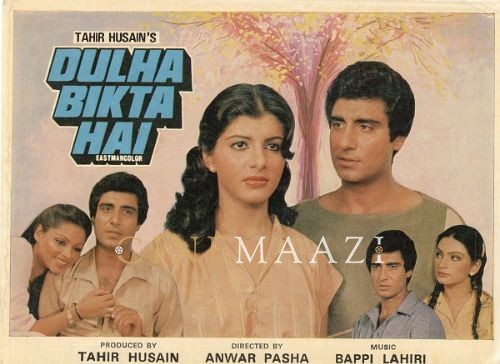
Dulha Bikta Hai 1982
-

Badrinath Dhaam 1980
-

Raja Harishchandra 1979
-
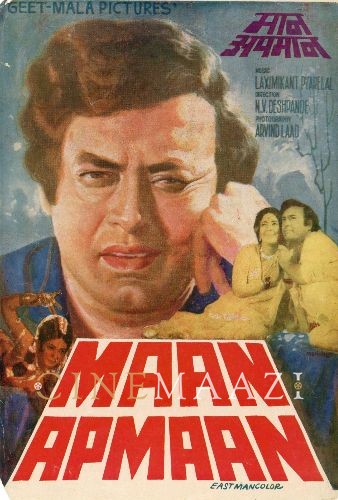
Maan Apmaan 1979
-
Gangaa Saagar 1978
-
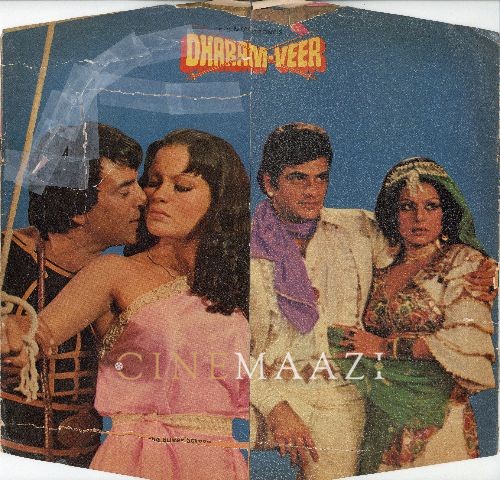
Dharam Veer 1977
-
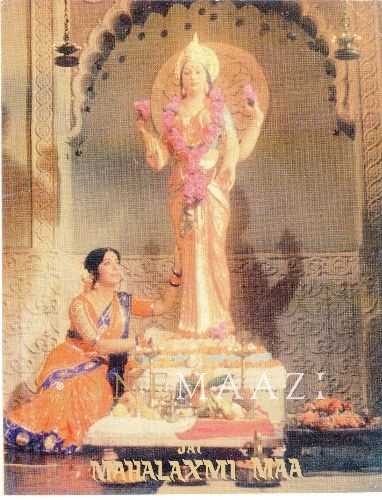
Jai Mahalaxmi Maa 1976
-

Jai Santoshi Maa 1975
-
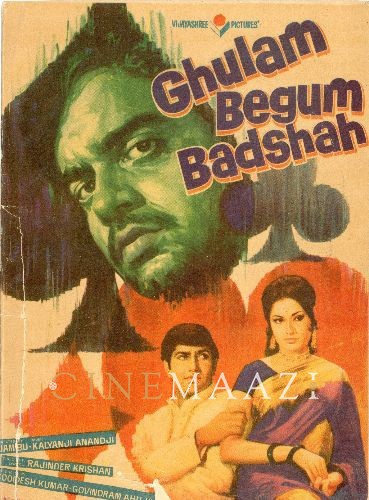
Ghulam Begum Badshah 1973
-








.jpg)



